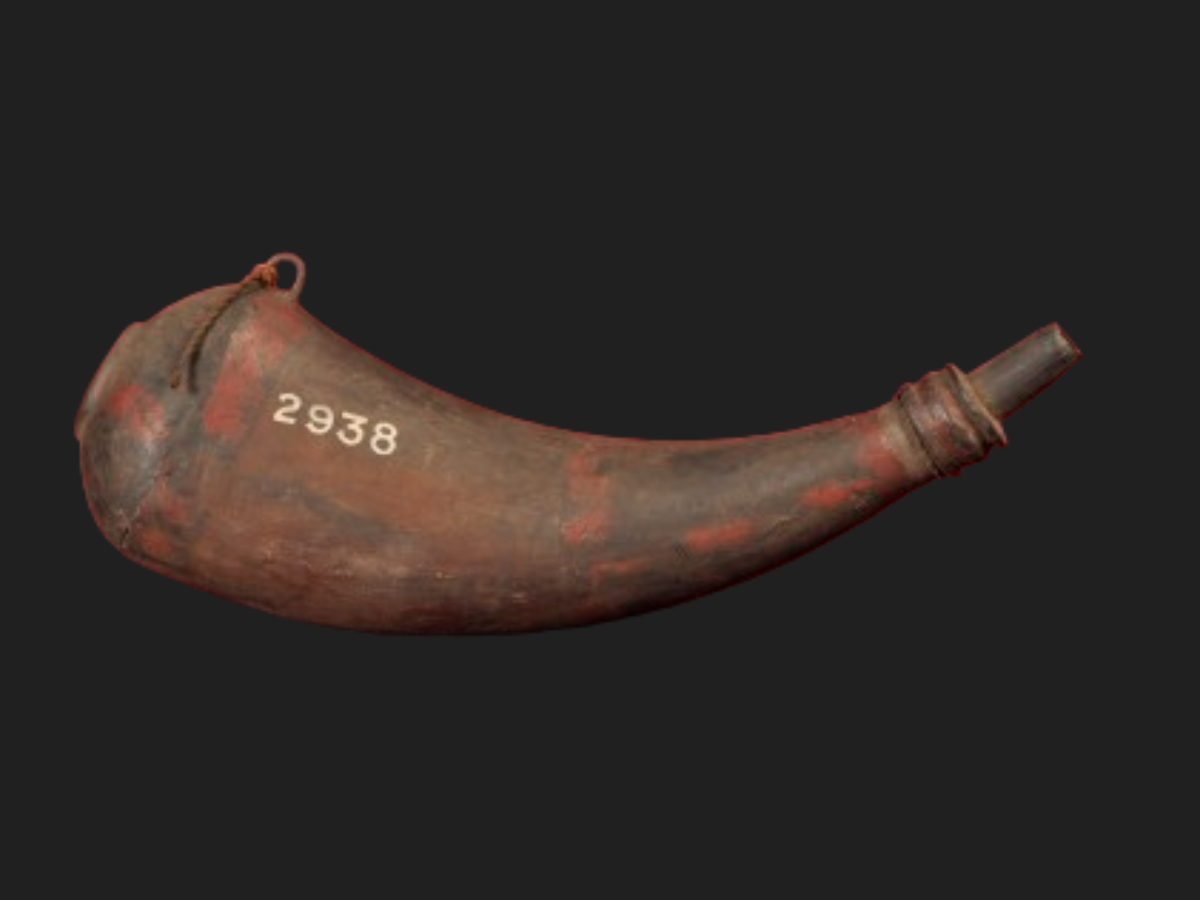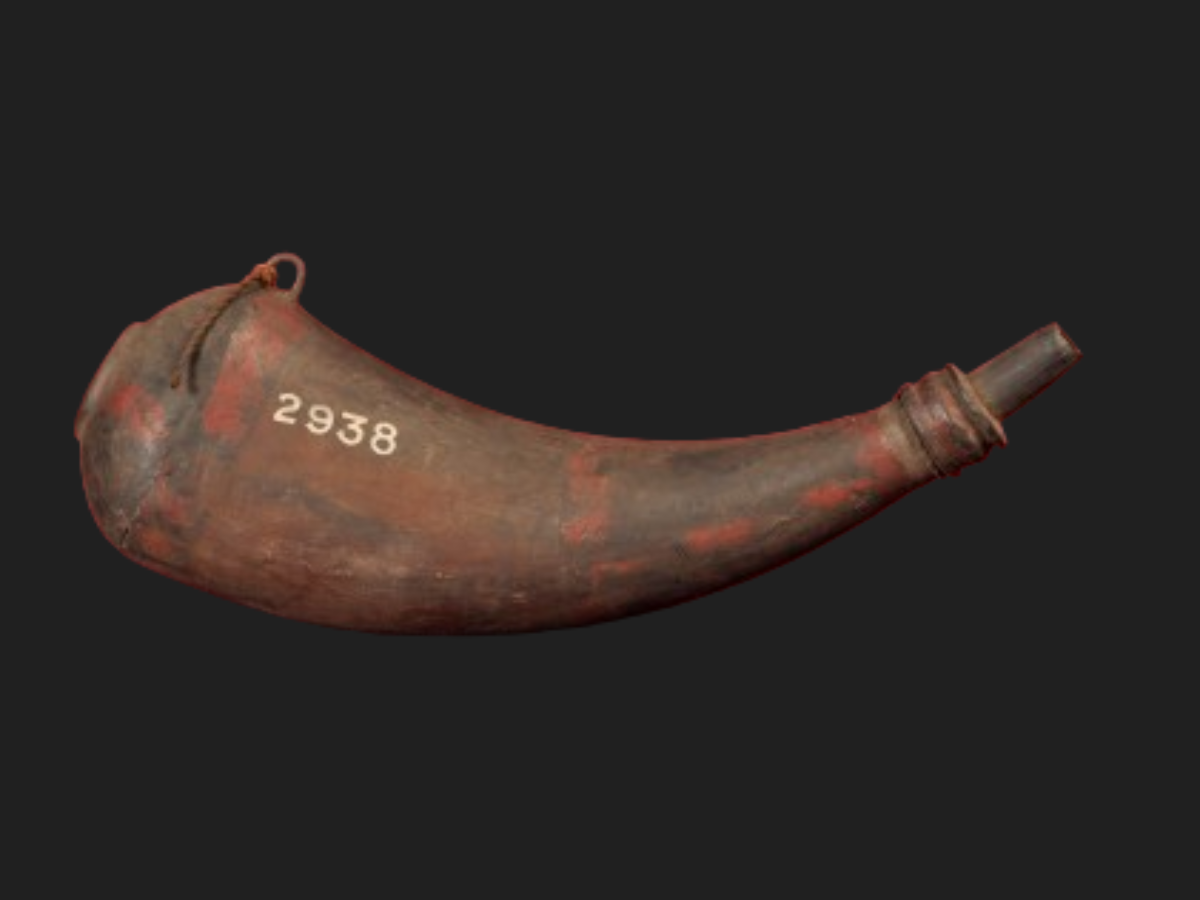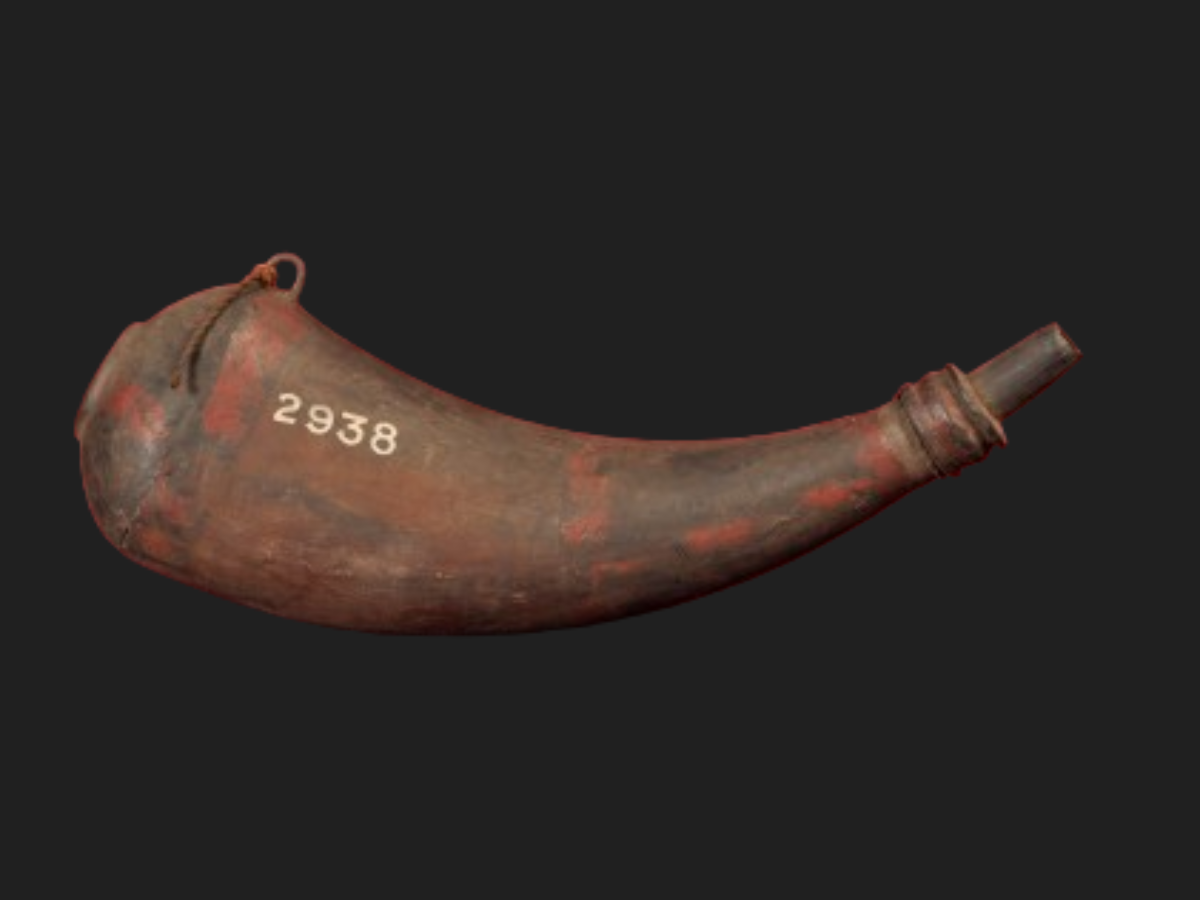State
Tribe Name
Art Type
short description
This traditional powder case is an example of habitat ingenuity and functional craft of the Cachari Tribe of Assam. It is located in the Indian Museum, Kolkata, and the artefact is made out of animal horn, revealing the tribe's bond with their environment.This particular powder case contains a bulbous body which is colored artistically to enliven its beauty. While one end of the horn is sharpened and left open to serve the purpose of dispensing powder, the other end is cut off thus sealing it, making it almost like a natural container that is good for storing gunpowder or herbal powders. The horn is extremely well curved and heavy in this context, making it both very sturdy and very portable, ideal for tribal usage that covers both hunting forays and traditional warfare.
Thumbnail

Filter Postion
Left
Filter Background
Off
Theme
Filter Header Image

content
Image

description
This traditional powder case is an example of habitat ingenuity and functional craft of the Cachari Tribe of Assam. It is located in the Indian Museum, Kolkata, and the artefact is made out of animal horn, revealing the tribe's bond with their environment.This particular powder case contains a bulbous body which is colored artistically to enliven its beauty. While one end of the horn is sharpened and left open to serve the purpose of dispensing powder, the other end is cut off thus sealing it, making it almost like a natural container that is good for storing gunpowder or herbal powders. The horn is extremely well curved and heavy in this context, making it both very sturdy and very portable, ideal for tribal usage that covers both hunting forays and traditional warfare.
For the Cachari, such powder cases formed part of the set of tools that a hunter or warrior used. These cases were not only functional but had cultural and symbolic significance - alluding to preparedness as well as skill in the art of craftsmanship. This very artifact signifies the arsenal worth of the tribes residing in Assam, proving how sharable daily articles can be fashioned from sustainable material retaining the primitive ways of knowledge acquisition through generations.
For the Cachari, such powder cases formed part of the set of tools that a hunter or warrior used. These cases were not only functional but had cultural and symbolic significance - alluding to preparedness as well as skill in the art of craftsmanship. This very artifact signifies the arsenal worth of the tribes residing in Assam, proving how sharable daily articles can be fashioned from sustainable material retaining the primitive ways of knowledge acquisition through generations.
Image Mode
landscape
promoted
On
Verified
Off
